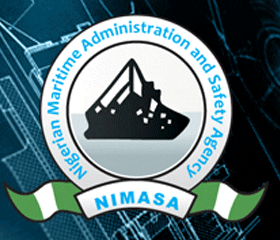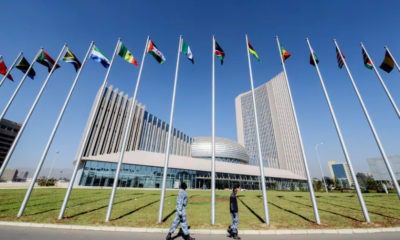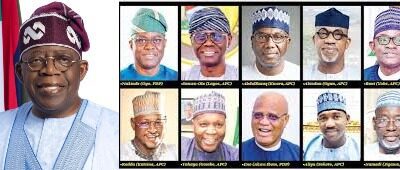National Issues
[Commentary]: Nigeria Menace of Human Trafficking in People with Disabilities -By Caleb Onah
Regular monitoring and evaluation of anti-trafficking initiatives are crucial to assess the effectiveness of interventions and identify areas that require improvement. Data collection, research, and analysis should be prioritised to gain a better understanding of the specific vulnerabilities faced by people with disabilities and tailor interventions accordingly.

Human trafficking is a heinous crime that affects millions of vulnerable individuals worldwide. Nigeria, like many other countries, has been grappling with this global epidemic. However, one particularly distressing aspect that demands urgent attention is the exploitation of people with disabilities. These individuals are disproportionately targeted and exploited due to their vulnerability, creating a deeply concerning issue that requires concerted efforts from all stakeholders.
People with disabilities face numerous challenges in society, including limited access to education, employment, healthcare, and social support. These vulnerabilities make them easy targets for traffickers who exploit their disabilities for profit. Many people with disabilities are marginalised and isolated, lacking the necessary protection and support networks to prevent falling prey to traffickers. Additionally, societal discrimination and stigmatisation further exacerbate their vulnerability, leaving them even more susceptible to exploitation.
Several factors contribute to the prevalence of human trafficking in people with disabilities in Nigeria. Poverty is a significant driving force, as impoverished individuals are more likely to seek better opportunities, making them susceptible to false promises from traffickers. Lack of awareness about the risks and tactics used by traffickers also plays a role.
People with disabilities may not have access to information or understand the dangers associated with trafficking, making those easier targets. Furthermore, inadequate law enforcement, corruption, and weak legal frameworks contribute to the perpetuation of this issue. Traffickers often operate with impunity, as their crimes go unpunished due to systemic failures and limited resources dedicated to combating human trafficking.
People with disabilities are subjected to various forms of exploitation within the human trafficking framework. They are often forced into labor, domestic servitude, and begging syndicates, with their disabilities used as a tool to evoke sympathy and maximise profits. In some cases, they may be subjected to organ trafficking, forced marriage, or sexual exploitation. These individuals endure physical and psychological abuse, deprivation of basic human rights, and a loss of autonomy.
The consequences of human trafficking on people with disabilities are severe and far-reaching. Physical injuries, emotional trauma, and chronic health problems are common outcomes of their exploitation. Their limited mobility and communication barriers exacerbate their suffering, as they may struggle to seek help or escape from their captors.
The long-lasting impact on their mental well-being can be profound, leading to anxiety, depression, and post-traumatic stress disorder (PTSD). Additionally, their families and communities also suffer as they endure the anguish of their loved ones’ plight.
In combating the menace addressing the issue of human trafficking in people with disabilities necessitates a comprehensive approach that involves government agencies, civil society organisations, and the international community. The government should enact and enforce robust laws specifically targeting human trafficking, with a focus on protecting the rights and welfare of people with disabilities. Training and capacity-building programs for law enforcement agencies are crucial to improve identification, investigation, and prosecution of traffickers.
Extensive awareness campaigns need to be conducted at national, regional, and community levels to educate people with disabilities about the risks of trafficking. Empowering them with knowledge and information is vital to prevent their exploitation.
Further, comprehensive support services, including shelters, counseling, healthcare, and vocational training, should be made available to survivors of human trafficking. These services must be accessible and tailored to the unique needs of people with disabilities.
Additionally, a multi-sectoral approach is crucial to effectively combat human trafficking in people with disabilities. Collaboration among government agencies, law enforcement, civil society organisations, disability rights groups, and international partners is necessary to share resources, expertise, and best practices. By working together, stakeholders can develop coordinated strategies, exchange information, and strengthen the overall response to this menace.
Empowerment plays a vital role in preventing human trafficking. Efforts should focus on promoting inclusive education, vocational training, and employment opportunities for people with disabilities. By providing them with the necessary skills and support, they can become self-sufficient, reducing their vulnerability to traffickers. Human trafficking is a transnational crime, and international cooperation is essential. Nigeria should collaborate with neighboring countries and international organisations to exchange information, coordinate efforts, and facilitate cross-border investigations. By enhancing collaboration, the trafficking networks can be disrupted, and victims can be rescued and repatriated safely.
Regular monitoring and evaluation of anti-trafficking initiatives are crucial to assess the effectiveness of interventions and identify areas that require improvement. Data collection, research, and analysis should be prioritised to gain a better understanding of the specific vulnerabilities faced by people with disabilities and tailor interventions accordingly.
Conclusively, the media should play a vital role in raising awareness and shaping public opinion. Journalists should be encouraged to report on human trafficking cases, particularly those involving people with disabilities. Sensitising the public to the issue can foster a sense of responsibility and mobilise support for anti-trafficking efforts.



















